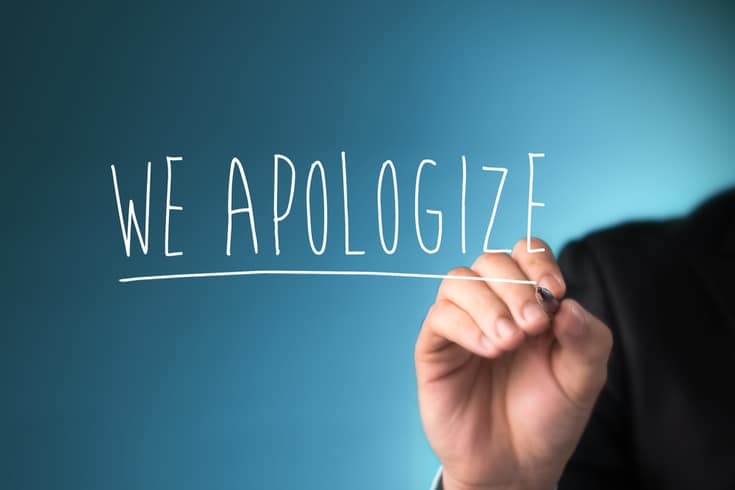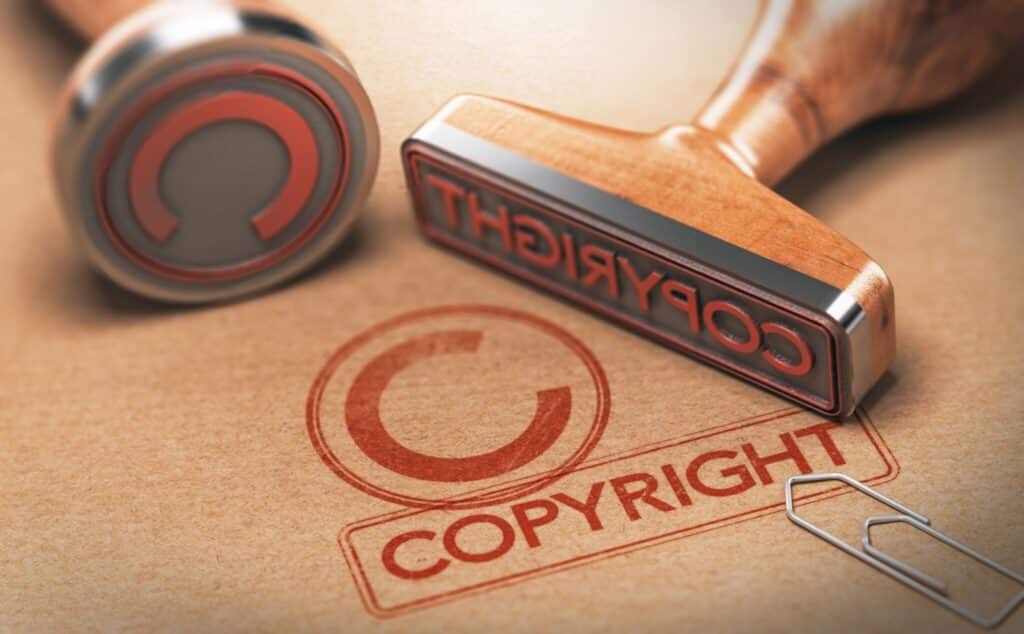Introducing Examples of Apology Advertisements as Measures to Restore Reputation in Cases of Defamation

In today’s society, where information spreads rapidly, the damage caused by defamation has become more severe. Furthermore, since defamation is an act that lowers the social evaluation of others, it is often considered that monetary compensation alone is insufficient for recovery from the damage.
Therefore, the Japanese Civil Code stipulates that in cases where defamation is established, measures to restore honor may be recognized in addition to damages.
Article 723 (Restoration in case of defamation)
The court may order a person who has defamed another’s honor to take appropriate measures to restore the honor, either in lieu of or in addition to damages, at the request of the victim.
It is common to require the posting of an apology advertisement as a measure to restore honor. However, it is not clear in what cases and in what content and method an apology advertisement is recognized, as it is left to the discretion of the court.
Therefore, in this article, we will introduce actual cases related to apology advertisements.
What is an Apology Advertisement?

An apology advertisement is a way for the perpetrator of defamation to express their apology to the victim through an advertisement.
You may have seen advertisements in newspapers and other media where authors or publishers who have posted defamatory articles in weekly magazines, etc., express their apologies to the victims.
However, there was a court case questioning whether forcing an apology advertisement, regardless of whether the perpetrator truly intends to apologize, violates the “freedom of conscience” (Article 19 of the Japanese Constitution).
Nevertheless, the Supreme Court of Japan ruled that the enforcement of apology advertisements under Article 723 of the Japanese Civil Code is constitutional.
Although there may be cases where forcing this would ignore the debtor’s personality, significantly defame their honor, and unjustly restrict their freedom of decision and even their freedom of conscience, thus not being suitable for so-called compulsory execution, if it merely confesses the truth of the situation and expresses an apology, it must be said that this can be achieved through the procedure of Article 733 (now Article 171) of the Japanese Civil Procedure Code.
Supreme Court Decision, July 4, 1966 (Civil Collection Vol. 10, No. 7, p. 785)
Since this ruling, there have been numerous judgments ordering apology advertisements.
However, it is important to note that just because defamation is recognized, it does not necessarily mean that an apology advertisement will also be recognized.
In the following, we will introduce how the courts have judged requests for the publication of apology advertisements based on actual cases.
Actual Cases Where Requests for Apology Advertisements Were Granted as Measures for Reputation Restoration

First, let’s introduce three cases where requests for apology advertisements were acknowledged.
Apology Advertisement for Defamation in a Weekly Magazine Article
This article discusses a case where a certain female announcer was falsely reported in “Weekly Gendai” to have worked part-time at a lingerie pub during her student days. This false article, accompanied by photos, was published multiple times.
Claiming defamation and infringement of portrait rights, she demanded damages and the publication of an apology advertisement from the publisher, Kodansha.
The Tokyo District Court acknowledged the defamation and infringement of portrait rights in the above article, and ordered Kodansha to pay 7.7 million yen in damages. In addition, the court ordered the publication of an apology advertisement in “Weekly Gendai” once, on half a page (9cm in height and 15.5cm in width), with the text in double-sized font (Tokyo District Court, September 5, 2001).
The Actual Published Apology Advertisement
Apology and Article Retraction
In our September 25, 1999 issue of “Weekly Gendai”, we published an article under the headline “TV Asahi’s New Beautiful Announcer was a ‘Roppongi Lingerie Pub Girl’ during her Student Days”, claiming that Ms. XXXX, an announcer for TV Asahi, had worked part-time at a lingerie pub in Roppongi during her student days. However, there was no truth to this claim.
We deeply apologize for publishing an unfounded article and significantly damaging the honor of Ms. XXXX, and we hereby retract the entire article.
Kodansha Ltd.
Representative Director, XXXX
To Ms. XXXX
Apology Advertisement for Defamation Reported in National Newspapers
A theater company that staged a play using a stage set incorporating works created by artist A, claimed defamation against artist B and others for holding a press conference stating that the actions of A and the theater company constituted copyright infringement. The theater company demanded damages and an apology advertisement from B and others.
The Tokyo High Court recognized the press conference as defamation. The court ordered B and others to pay damages of 1.4 million yen each to A and the theater company, and to publish an apology advertisement in national newspapers such as the Asahi Shimbun, which reported on this issue. The advertisement was to be published once in each newspaper, with headlines and bylines in 14-point type, and the main text and other parts in 8-point type (Tokyo High Court, September 19, 2000).
It should be noted that in this case, the responsibility of the national newspapers that reported on the press conference was denied.
Apology Advertisement for Defamation Conducted on a Website
The plaintiff posted documents on their academic journal and personal website, stating that there were academic errors in the content of a book written by the defendant. In response, the defendant posted documents on their own website, emphasizing the maliciousness of the plaintiff’s research activities.
The plaintiff claimed that their reputation had been defamed by the documents posted on the defendant’s website, and demanded compensation for damages, deletion of the documents, and the posting of an apology advertisement. The defendant counterclaimed with the same content, alleging that their reputation had been defamed by the documents and lectures posted on the plaintiff’s website.
The Tokyo District Court acknowledged that the defendant’s documents were defamatory to the plaintiff, and ordered the defendant to pay 3.3 million yen in damages, delete the documents, and post an apology advertisement on their website (Tokyo District Court, November 8, 2012).
On the other hand, the court dismissed the defendant’s claim regarding the plaintiff’s documents, stating that they were criticisms from an academic standpoint and did not lower the defendant’s social evaluation.
Looking at this case where the request for an apology advertisement was accepted, it can be seen that, in principle, an apology advertisement is ordered to be posted on the medium where the defamation took place.
Considering the significance of reputation restoration measures, it can be said that it is rational to apologize and correct at the source of the information.
Apology Advertisements May Not Always Be Granted

As previously mentioned, just because defamation is recognized, it does not necessarily mean that an apology advertisement will also be granted.
In reality, publishing an apology advertisement in a newspaper or other media requires a significant cost, which is borne by the offender. The court tends to be cautious about forcing apology advertisements, considering various circumstances such as the cost and the disadvantage to the media ordered to publish the advertisement.
In the following, let’s examine the circumstances under which the court may not approve apology advertisements and explore the factors considered in such instances.
Common Reasons for Not Granting Apology Advertisements
In a case where a venture company and its manager claimed that an article published in “Shukan Shincho” and other publications, suggesting stock price manipulation, was defamatory, and demanded damages and the publication of an apology advertisement from the publisher, Shinchosha, the Tokyo District Court made the following ruling:
Although the plaintiffs are demanding an apology advertisement, we cannot recognize that the plaintiffs’ damages cannot be compensated unless an apology advertisement is published in addition to the above-mentioned monetary compensation. Therefore, there is no reason for the plaintiffs’ request to publish an apology advertisement.
Tokyo District Court, July 25, 2003
This ruling is the most common reason for not granting an apology advertisement even when defamation is recognized. In other words, it was judged that monetary compensation is sufficient to compensate for the damage caused by defamation. But what considerations led to this?
Case Considering the Manner of Defamation and the Status of the Victim
In a case where the president of a talent agency claimed that an article about a trouble with an affiliated actress published in “Shukan Bunshun” was defamatory, and demanded damages and the publication of an apology advertisement from the publisher, Bungeishunju, and the editor-in-chief at the time, the Tokyo District Court made the following ruling:
Although the damage suffered by the plaintiffs due to the defendants’ defamation is significant, there are some expressions in the article that are true in part (for example, that B’s monthly salary was 50,000 yen), and there are some parts of G’s statements made during an interview with a reporter from the defendant company that could lead to misunderstandings (for example, that the plaintiff company initially made a statement suggesting that it had declined an offer to appear in “Attack on Titan”). Considering these factors, as well as the fact that the plaintiff company is a major talent agency and the plaintiff A is its representative director and a standing director of the Music Association, and therefore has some ability to restore its own reputation, it can be said that monetary compensation is sufficient to restore the plaintiffs’ tarnished reputation, and there is no need to recognize the necessity of publishing an apology advertisement in addition to this.
Tokyo District Court, April 19, 2019
As such, there are cases where the publication of an apology advertisement is not recognized, considering the manner of defamation and the status of the victim.
Case Considering the Influence of the Media and the Circumstances After Publication
This is a case where a former female member of the Diet claimed that an article published in the monthly magazine “Will”, stating that her birthplace was the Korean Peninsula and her name was a Korean name, and therefore she did not adequately respond to the abduction of Japanese citizens by North Korea, was defamatory, and demanded damages and the publication of an apology advertisement from the publisher, WAC, and the editor-in-chief at the time.
The Kobe District Court recognized defamation and ordered a payment of 2 million yen in damages, but did not grant the publication of an apology advertisement, making the following ruling:
Considering that the actual sales of the magazine in which the article in question was published were only about 40,000 copies, that the facts indicated in the article were not displayed in newspaper advertisements or hanging advertisements in trains, that the title and author’s name of the article were not listed on the cover of the magazine (therefore, even if the magazine was stacked in a bookstore, the content of the article could not be easily recognized), and that more than two years have passed since the publication of the magazine, but there is no evidence that the existence of the article has been a major obstacle to the plaintiff’s political and social activities, and that the influence of the article, considering the content of the article and the position of the magazine in the world of journalism, is almost negligible, it must be said that in this case, there is no need to order the restoration of the original state, such as the publication of an apology advertisement, in addition to monetary damages, in order to restore the plaintiff’s reputation.
Kobe District Court, November 13, 2008
Here, the influence of the magazine in which the article was published and the circumstances after the publication are taken into consideration.
As can be seen from these court cases, whether or not an apology advertisement is necessary is considered based on how much actual damage has been caused by the statement in question, as opposed to whether or not defamation is established, which is judged abstractly based on the possibility of a decrease in social evaluation in light of the content of the statement in question.
Defamation through Books and Methods of Apology Advertisements

This article discusses a case where critic A claimed defamation when a book written by literary critic B stated that A’s pen name as a critic belonged to their spouse and that A was not engaged in writing or any other activities.
A demanded that B and the publisher of the book pay damages and publish apology advertisements in major national newspapers, as well as post apology statements on their respective websites.
The Tokyo District Court acknowledged the defamation and ordered each party to post the specified apology statement on the top page of their respective websites for one month. The court stated the following:
“…In this case, it is clear that internet-based discourse has a significant impact. To restore the plaintiff’s reputation, monetary compensation alone is not sufficient. It is necessary and appropriate to have the defendant Yamagata and the defendant MediaWorks post an apology statement on an internet bulletin board. If this is done for one month, the plaintiff’s reputation will be substantially restored. Therefore, we order an apology on the internet bulletin board for that period, excluding the defendant Shufu no Tomo-sha. The plaintiff also demands an apology advertisement in major national newspapers. However, as recognized above, the book in question is in a somewhat special field called ‘alternative culture’ with a circulation of about 10,000 copies. It is not widely distributed in general society. Considering that the purpose can be almost achieved with an internet apology advertisement, we do not order an apology advertisement in major national newspapers.”
Tokyo District Court, December 25, 2001
In this case, considering the exchange of opinions on the internet, an apology advertisement on the website was recognized.
Furthermore, especially in books, it is usually difficult to think that the same person will repeatedly purchase the same book. Therefore, it is considered that there were circumstances where measures such as inserting corrections after the fact were not sufficient as measures to restore honor.
As mentioned earlier, it is rational to post apology advertisements in the medium where the defamation occurred. However, as in this case, considering the specific manner of defamation and the nature of the medium, it may be possible to pursue more flexible and rational methods of apology advertisements.
Summary: Consider Apology Advertisements as a Means of Restoring Reputation if You Have Been Defamed

Courts are generally reluctant to approve apology advertisements, but as mentioned above, there are several cases where they have been accepted. The damage caused by defamation cannot be remedied by money alone, and there are many cases where fundamental resolution cannot be achieved without taking measures to restore reputation, such as apology advertisements.
Therefore, if you have been defamed, consider not only claiming for damages but also requesting the publication of an apology advertisement as a measure to restore your reputation.
If you are considering an apology advertisement as a measure to restore your reputation, as discussed in this article, please do not hesitate to consult with a lawyer.
Introduction to Our Firm’s Measures
Monolith Law Office is a legal office with high expertise in both IT, particularly the Internet, and law. In recent years, overlooking information related to reputational damage and slander spread on the Internet can lead to serious harm. Our firm provides solutions for managing reputational damage and online crises.
Category: Internet





















